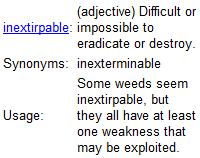You are currently browsing the category archive for the ‘Religion’ category.
Hurrah for Reverend Gregory A. Boyd who courageously stood up to the Evangelical powers that be and his own wayward flock by challenging the politicization of the church and the associated distortion of its message. Boyd, in his sermons, remained true to foundational Christian values of peace, mercy, and forgiveness. According to the NY Times article:
Mr. Boyd laid out a broad argument that the role of Christians was not to seek “power over” others — by controlling governments, passing legislation or fighting wars. Christians should instead seek to have “power under” others — “winning people’s hearts” by sacrificing for those in need, as Jesus did, Mr. Boyd said.
And:
Before the last presidential election, he preached six sermons called “The Cross and the Sword” in which he said the church should steer clear of politics, give up moralizing on sexual issues, stop claiming the United States as a “Christian nation” and stop glorifying American military campaigns.
He said that the turning point for him came “while visiting another megachurch’s worship service on a Fourth of July years ago. The service finished with the chorus singing ‘God Bless America’ and a video of fighter jets flying over a hill silhouetted with crosses.”
This strikingly incongruous image and the reverend’s reaction to it reflect an age-old conflict; that between less worldly and more purist clerics who attempt to adhere to Christ’s essential teachings, and those who would appropriate Christianity in order to justify their self-righteous actions, mostly having to do with power, self-aggrandizement, and moral dogmatism.
The hypocrisy of this extremist stance is lost on many. The article quotes a woman who will not return to the church after hearing the reverend’s comments. She said, “If we contain the wisdom and grace and love and creativity of Jesus, why shouldn’t we be the ones involved in politics and setting laws?” She apparently sees no disjuncture between “grace”– human mercy and forgiveness as a reflection of divine Grace, the mercy of God–and policies that would advocate pre-emptive war and retaliation for terrorism, rather than defense against it. She also, apparently, does not understand that a fundamental Christian tenet posits that the “wisdom, grace, love, and creativity” of Jesus is, latent or revealed, within us all, not in just a select few. Not to mention that she seems clueless regarding constitutional provisions for the separation of church and state, as well as its substantial historical context.
The most extreme of these Christian extremists would have us return to the Dark Ages by rejecting evolution, a scientific principle that is fundamental to a more intellectually expansive, all-embracing, and holistic world-view. The dismantling of evolution would amount to the dismantling of much of our life science, for which evolution serves as something of a unified field theory. Creationists would have us promote ignorance and irrationality by teaching our children that knowledge is indistinguishable from faith.
Reverend Boyd has written a book based on his sermons called, “The Myth of a Christian Nation: How the Quest for Political Power Is Destroying the Church.” The cover of the book, by the way, shows a Statue of Liberty holding a cross instead of a torch; the same type of monument was erected at a Memphis church and was amusingly ridiculed by Bill Maher, who is always good for amusing ridicule.
Bill Moyers’ new series, Faith and Reason, is in some ways more compelling than his topical series, NOW, which has been truncated to a half-hour, sans Bill Moyers, due to right wing accusations of liberal bias. Moyers is more in his element here, conducting longer, in-depth interviews with writers on a subject that obviously fascinates him, harkening back to his now classic interviews with mythologist Joseph Campbell.
These interviews are significant and compelling because they further problematize what is already problematic—the tension between organized religion, still part of many people’s lives, and the secular humanist values that define much of the western world’s social infrastructure, particularly in a democracy. Sam Harris explored these issues, in a decidedly biased way, in the bestselling book The End of Faith. In a world in which fundamentalist religion wreaks so much havoc, it seems that people are, unconsciously at least, seeking new paradigms for their conception of the divine. Did the fervor over the Da Vinci Code spring from people’s need for a damn good mystery or from the need for a more fully human Christ, a family man that one can relate to, rather than the rabbinical and cryptic Jesus of Mathew or the more abstract, inaccessible, and iconic Jesus of John? Or did it spring from a desire to debunk and transcend beliefs that many consider metaphoric and many others consider poppycock?
The latest interview, with Salman Rushdie, was truly provocative and thought provoking, and if not seen, can be appreciated through the transcript, available on Moyers’ site. Rushdie speaks about Islam; fundamentalism; the fatwa that caused him to go underground for nearly ten years; the role of the artist, particularly in relation to religion and spirituality; and the nature of morality.
Rushdie had the following to say in response to the Danish cartoon controversy:
I think there’s two subjects on the Danish cartoon. There’s the cartoons themselves. Would you have published them, should you have published them? And I think these are arguments that newspapers have every day. You know, what’s an appropriate editorial stance on a given issue? So, I think we could have that argument in a kind of straight forward civil discourse. And we can have different points of view about it. I think the second thing that happened was the enormously violent and intimidatory response. And then the question I think changes. The question becomes how do you respond to intimidation? And I’m afraid that many of the people who refused to stock the cartoons, who refused to reprint them, claiming that they were being respectful were actually not being respectful, they were being scared, you know. And I think the problem is with intimidation is that if you do surrender to it you make sure that there will be more intimidation in the future.
Rushdie recently appeared at the PEN World Voices festival of writers where he read from his work. PEN International continues to do the important work of promoting free expression and advancing literature and literary fellowship. Its Prison Writing Program has been particularly successful.































Recent Comments